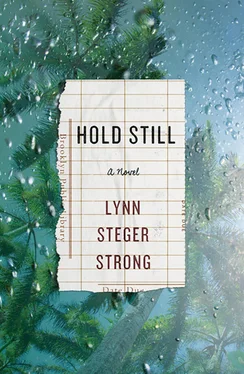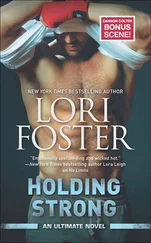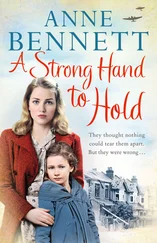Ellie holds her breath.
“So, who was that dude?” he says. He leans forward again, the joint still in his hand. “Your mom was pissed?”
She’d somehow convinced Dylan to leave just after her mom. He’d promised to call her, leaned across the counter, and she hadn’t pulled away as he kissed her lightly on the lips.
Ellie nods.
Joseph pulls on the joint a second time. “You look like her.”
Ellie shakes her head. “Not really.” People used to say this all the time when she was little, but not now. Ellie’s small like her mom, with dark hair and eyes and features that look shocked and too sharp most of the time, but somehow they wear these things too differently for most people to notice how similar they are. Ellie seldom has the courage to look too long or too closely at either her own reflection or her mom.
“I realized, watching you, I don’t know anything about you, you know? When I’ve spent all this time going on and on about my shit.” Ellie noticed early on with Joseph, if she was very quiet and very still, if every once in a while she asked a question, he would keep talking and she could just listen, take him in.
He’s twenty-six, recently finished law school. He’d never meant to go, though. He works at the coffee shop, plays music, ignores his student loans.
Ellie’s favorite thing about Joseph is that they have so far not so much as touched.
“Oh, you know,” Ellie says. “Just aimless teenage shit.”
He nods toward the joint, more for decorum’s sake than anything. Ellie has so far, each time he’s offered, managed to say no.
“And your fancy ivy-covered parents don’t care you’re not in school?”
“They just. .” The joint burns as he rests his elbow on the armrest of his lawn chair. The rolling paper crackles and smoke lingers just above his hand.
“No one’s that nonjudgmental.”
Her parents have learned to be quite good, actually, at lowering the bar. “I had some issues,” Ellie says.
“That dude, yeah?” Joseph finally takes another hit.
“Dylan. Yeah, sort of.”
“How bad?”
Ellie wants to ask for the joint in order that she might be free to tell him something small and honest. She wants to stay completely sober, tell him the whole thing from start to finish, and have him still want to sit and talk to her.
“You know,” she says.
“Not really.” Joseph shakes his head. There’s an ashtray in the center of the table, and he grabs it, stamping out the joint and letting it rest. “I know you’re too cute to sit around all day and listen to me whine.”
She feels her face turn red and wishes that he hadn’t said this. “I’m. . that’s not true,” she says.
“One thing?” he says.
She leans closer toward the table: the little bit of weed that’s left.
Ellie nods toward the joint. “I used to like that sort of thing too much.” This isn’t quite right — she wishes she were something as straightforward as a drug addict — but she wants to see this version of herself on him.
“You should have told me,” he says.
“It’s not. .” She looks down and shrugs. “It’s just weed,” she says.
Ellie burrows her boots into the dirt until the toes are completely covered; she waits for whatever will come after this. She sees Dylan standing at the counter, her mom frantic. She imagines her mom sitting in her office now, doing everything she can not to call or text Ellie. The yard next to Joseph’s has a large maple tree that leans heavily, and its branches brush above Joseph and Ellie’s heads. She grabs hold of one of the leaves and rips it off the branch. She tears it into brittle strips between her fingers, and, as Joseph watches, Ellie doesn’t speak.
Joseph angles his chair close to hers and Ellie doesn’t back away. She knows there’s a moment when she could sit back with her arms across her chest and today could end the way the other days have. But, as he leans in close and lets his index finger linger on her knee, Ellie just stays very still and doesn’t speak.
Maya stands and runs. She heads straight to Bergen, down toward Court Street, past Atlantic, brownstone, brownstone, brownstone, big park, courthouse, crossing over the Brooklyn Bridge. One foot, then the other: it’s the simplest thing she does all day. She never listens to music and she almost always runs alone. She likes the sporadic snippets of the city’s sounds before it’s fully risen. A baby screaming through an open window, a car horn, a garbage truck backing up the wrong direction on a one-way street. She likes the smells, exhaust and baking bread, the unidentified chemicals as she crosses the Gowanus. The water is so thick with waste that the trash doesn’t float, half submerged: it just sits solidly on top.
It’s the sort of morning that she loves and lets herself hold tight to, the air just cold and dry enough to catch sharp inside her lungs. The inclines change incessantly. She’s up and down and then her arms are swinging harder. Her body doesn’t give her what it used to. She’s slower now, but no less determined to push and push. Her legs are long, almost as long as Stephen’s, though he’s at least six inches taller than her — their hips hit at nearly the same point — and they stretch out far in front of her, the ball of each foot hits the pavement, her knee bends, her foot rises nearly to her ass. The pedestrian path on the bridge is wood and creaks beneath her feet as they land, spring up, and land again. Her breath slows and steadies as she looks past the bridge to all the water underneath.
Once in Manhattan, she heads south on Broadway to the bottom of the island, to the seaport where boats are docked and sloshing in the Hudson and the smells are strong of rotted fish, then west and through the steep slate of the memorials in Battery Park. This stretch along the Hudson is usually filled with runners and tourists in line to take the ferry to Liberty Island, but she’s so early she has the whole thing to herself: the space of cobbled concrete and small parks, the sailboats, the volleyball nets lined up on rubber courts.
Just past a set of docks with sailboats in a row, Maya stops and slips her shoes off. The wind bites through the tights she’s wearing, gnawing sharply along her skin, and her bare face smarts; small drops of water reach her as she walks closer to the edge. She wears no gloves, and the fence that separates her from the water is cold and sticks to her fingers as she holds on and climbs up over the top. The water’s gray slate, with tiny whitecaps forming out closer to New Jersey. She can see Liberty Island, boats knocking against their moorings another hundred feet away.
She settles herself carefully onto the other side of the fence, half hanging over the water, her hands holding tightly to the metal bars. Cold drops splash up onto the balls of her feet and around her ankles. The water feels warm at first compared to the whip of the air. She looks out toward New Jersey, the Statue of Liberty almost completely obstructed by the early morning fog. The ledge is brick and the edges catch against the bottoms of her thighs and she feels her tights pilling. She has to alternate the hand she uses to hold the fence behind her, as the sting of it is only bearable for small stretches of time.
Her whole life she’s been a strong swimmer. She thinks: if it weren’t for the nearly inevitable hypothermia, she’d be able to get to New Jersey before the sun is up. And, just for that moment of going under, those few seconds after the initial shock of the cold, when the water has reached just above her neck and she’s about to pull her whole self under, it might be worth whatever else might come as a result.
Ellie, seventeen: Maya would peek over her shoulder. She would grab Ellie’s phone and checked the text messages when Ellie went into the bathroom or once she’d gone to sleep. She would hack into Ellie’s email and her Facebook. There were rules and boundaries about trust and fairness and giving children space that she believed in, right up till she didn’t anymore. Until trust felt like a silly word that was just standing in the place of actually doing something to save her daughter, a privilege reserved for people with lives much less complicated than theirs.
Читать дальше












